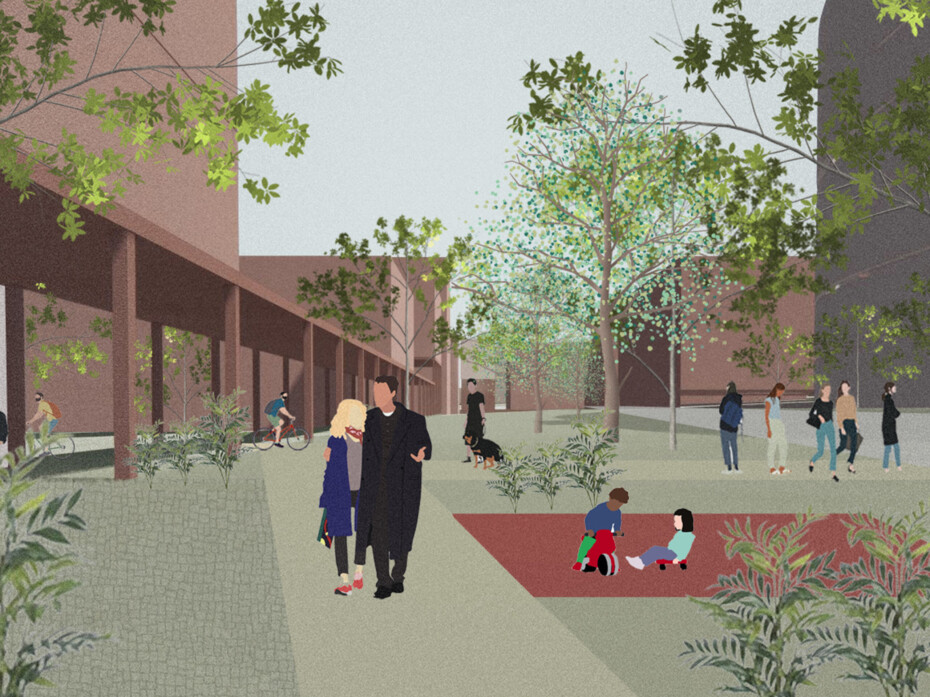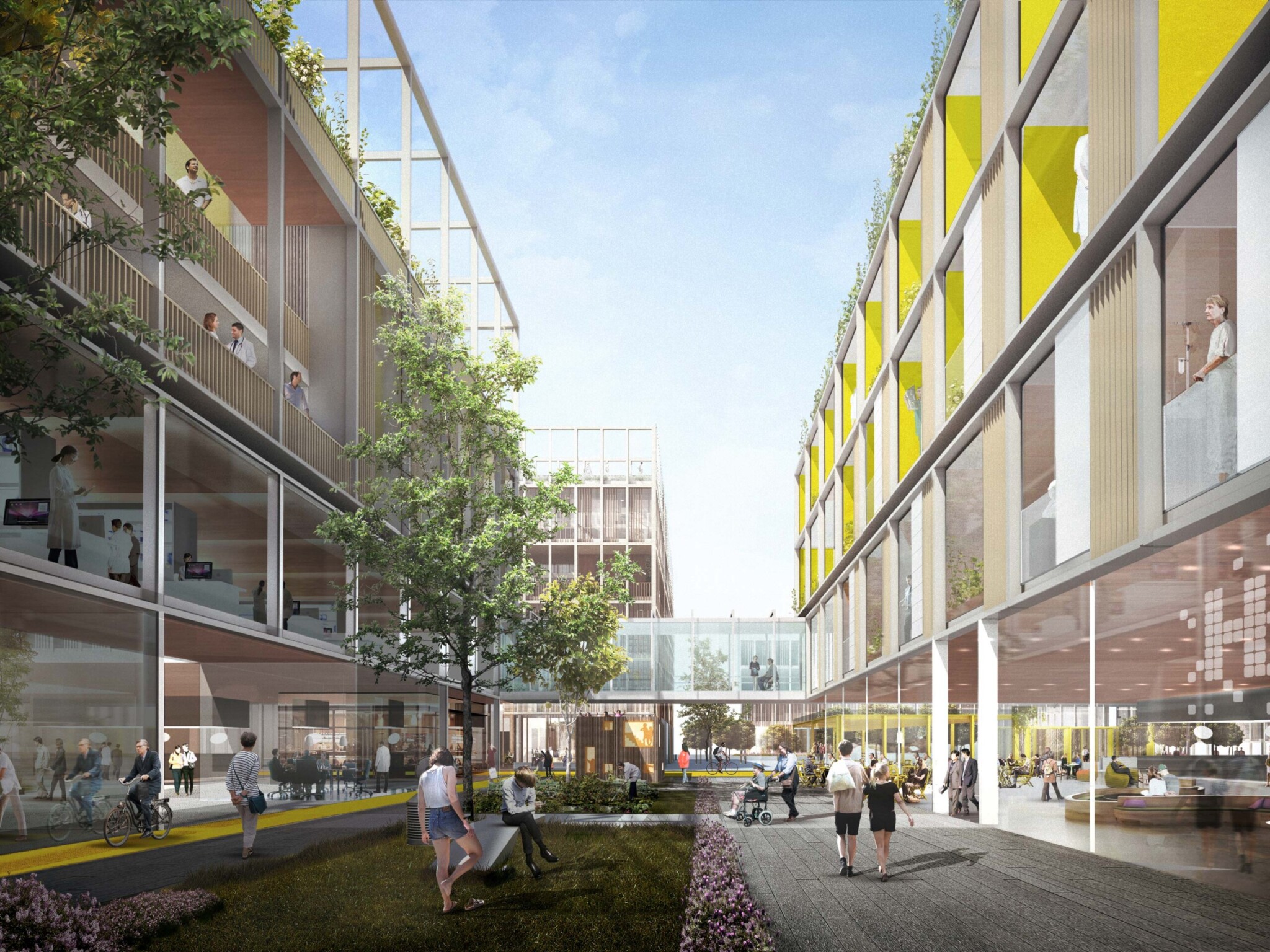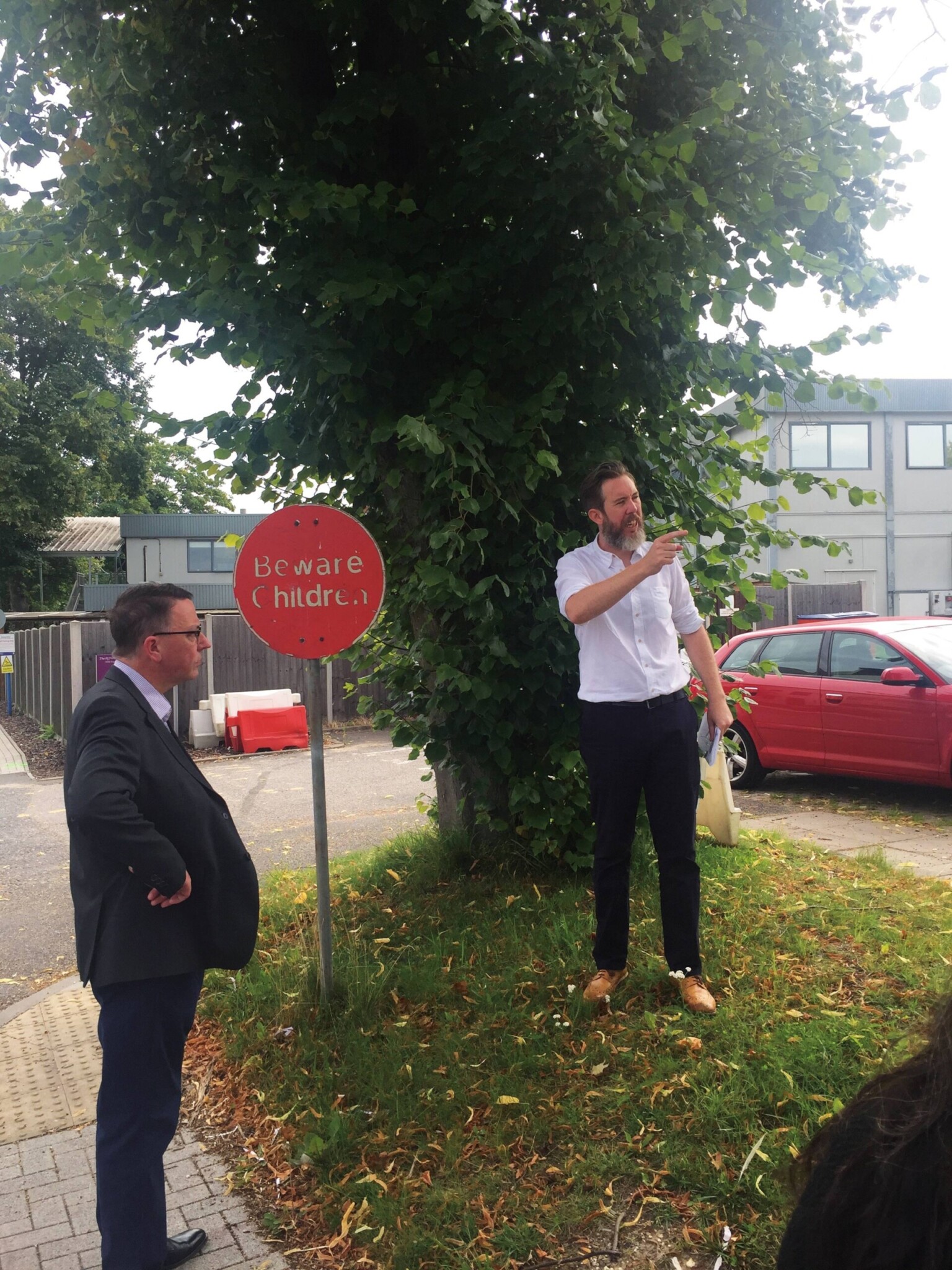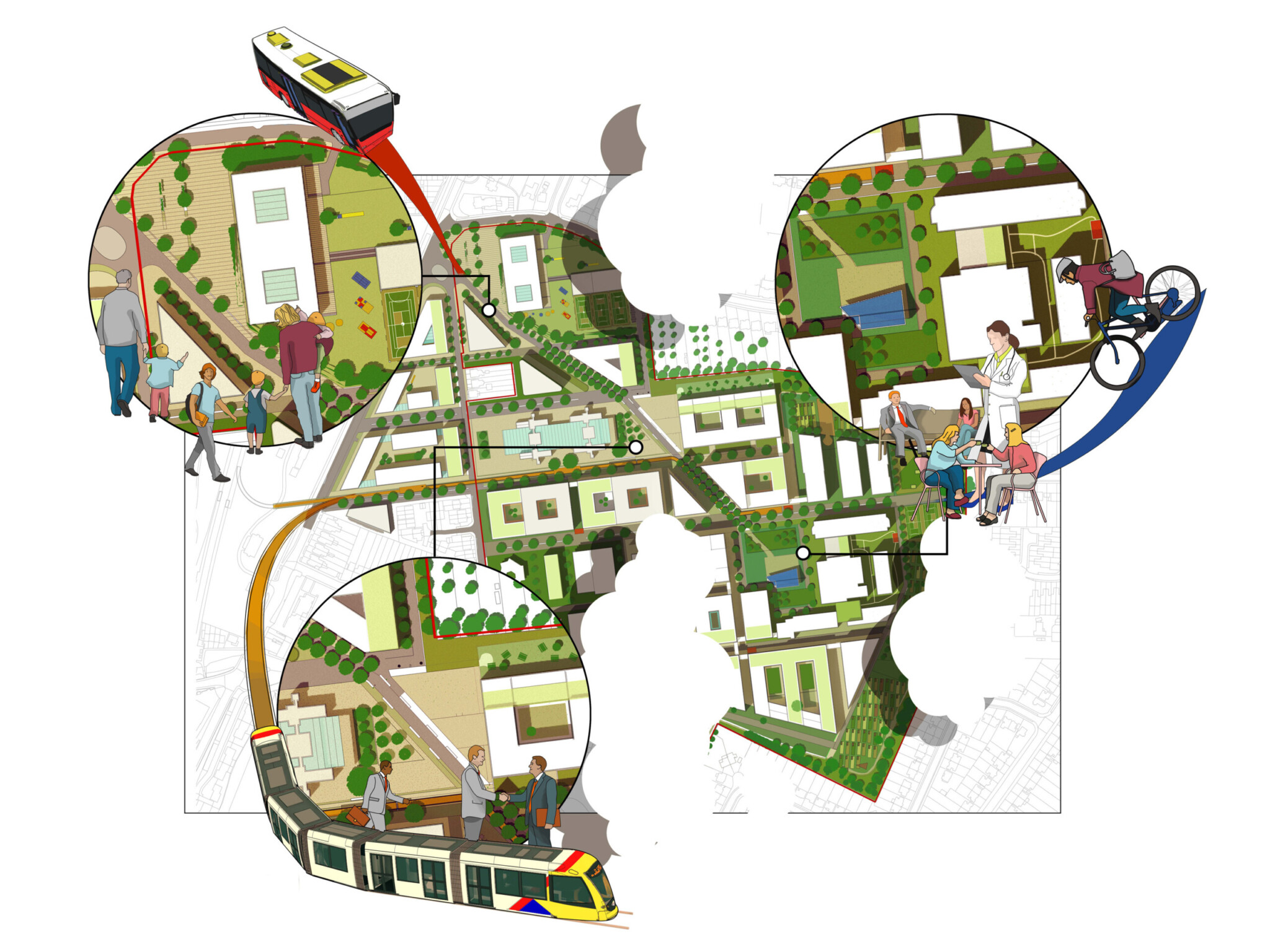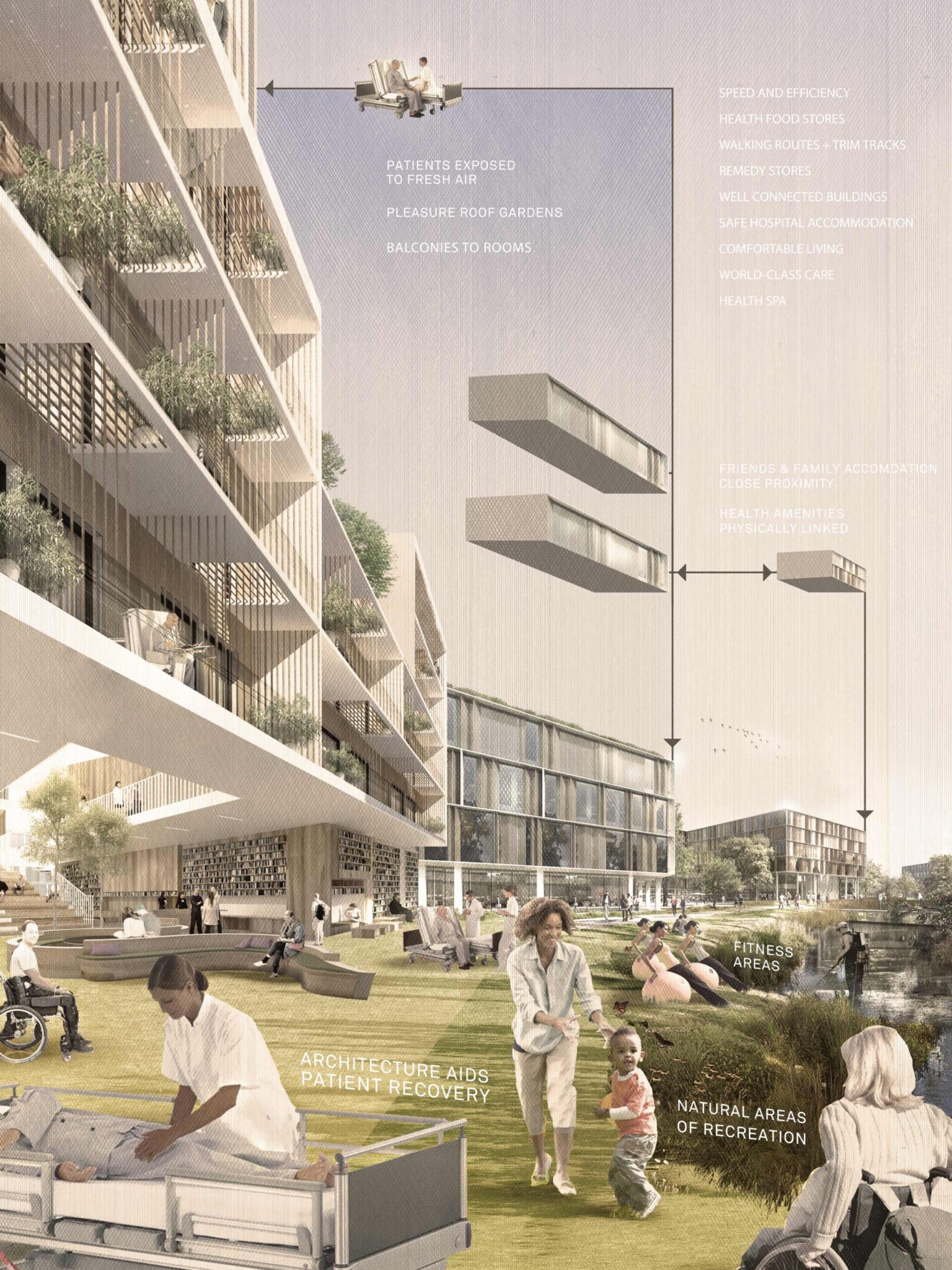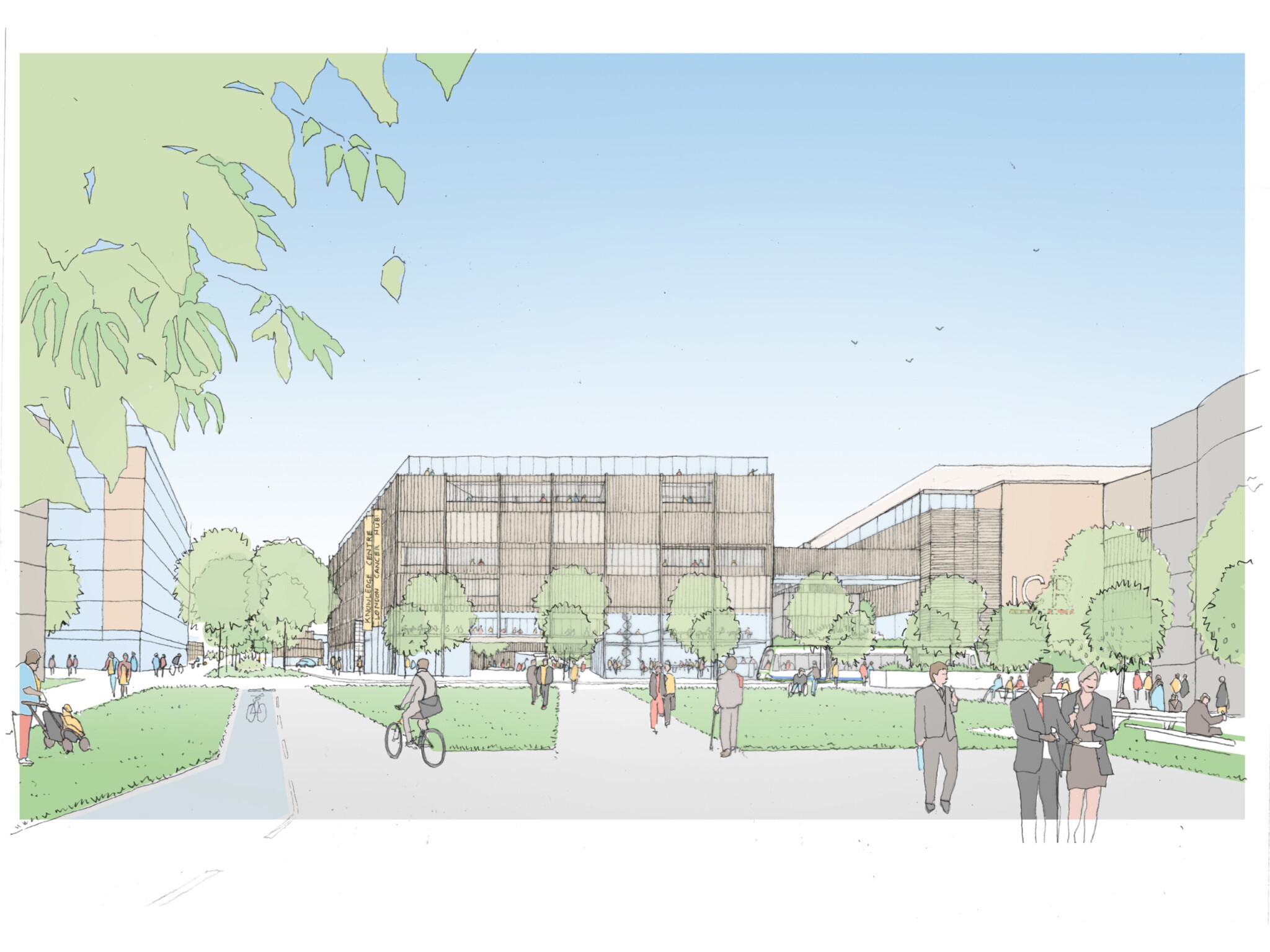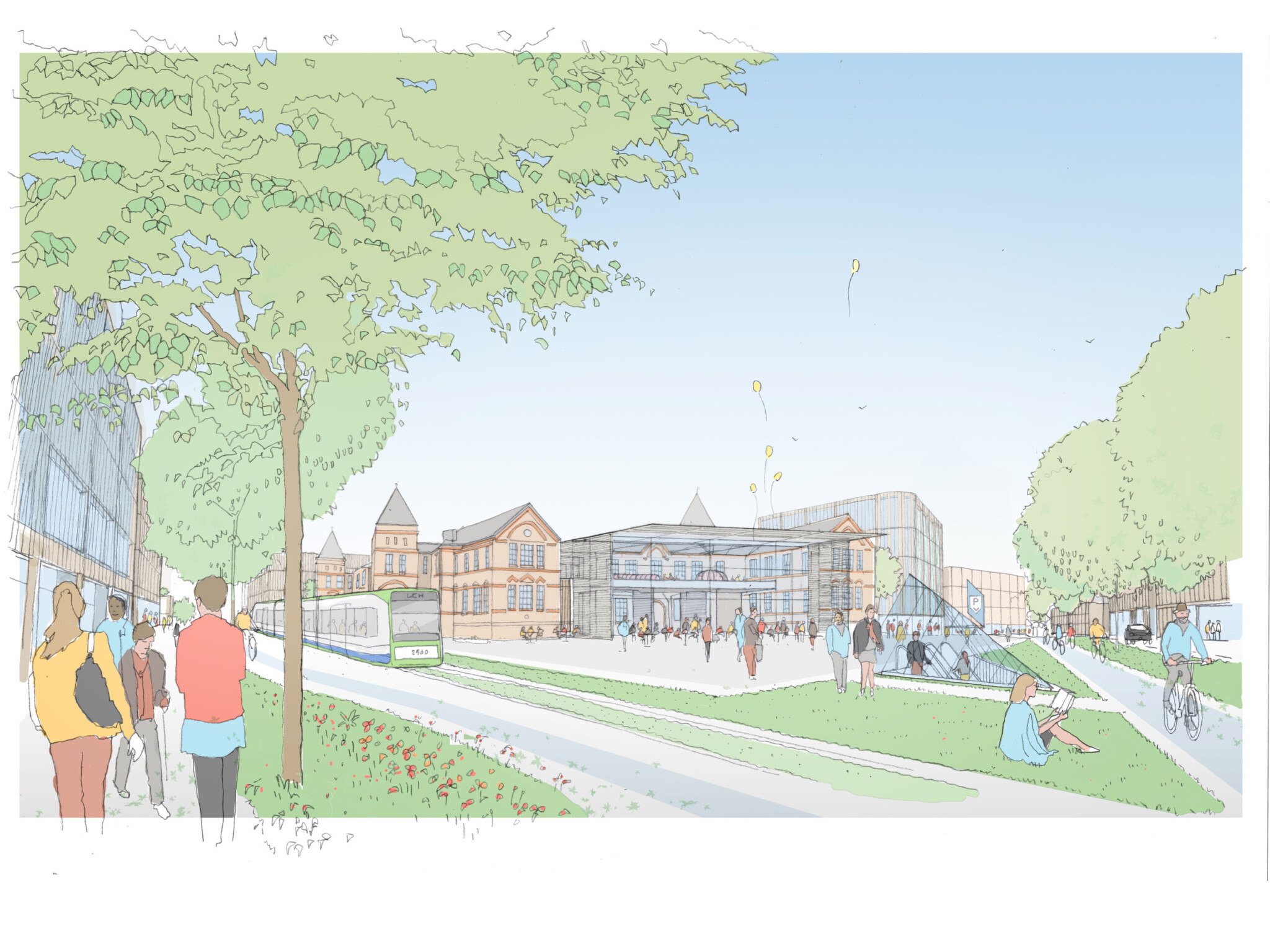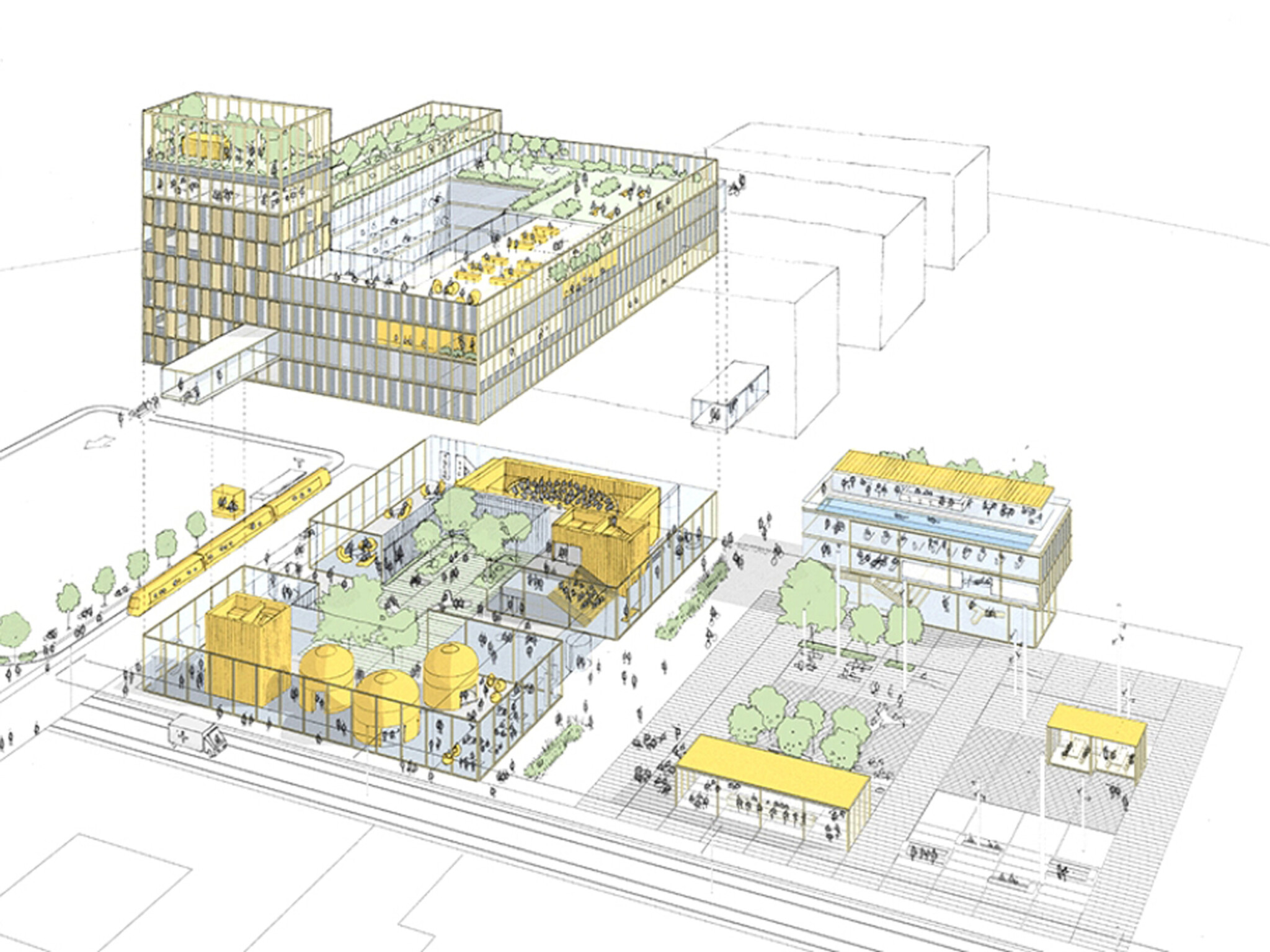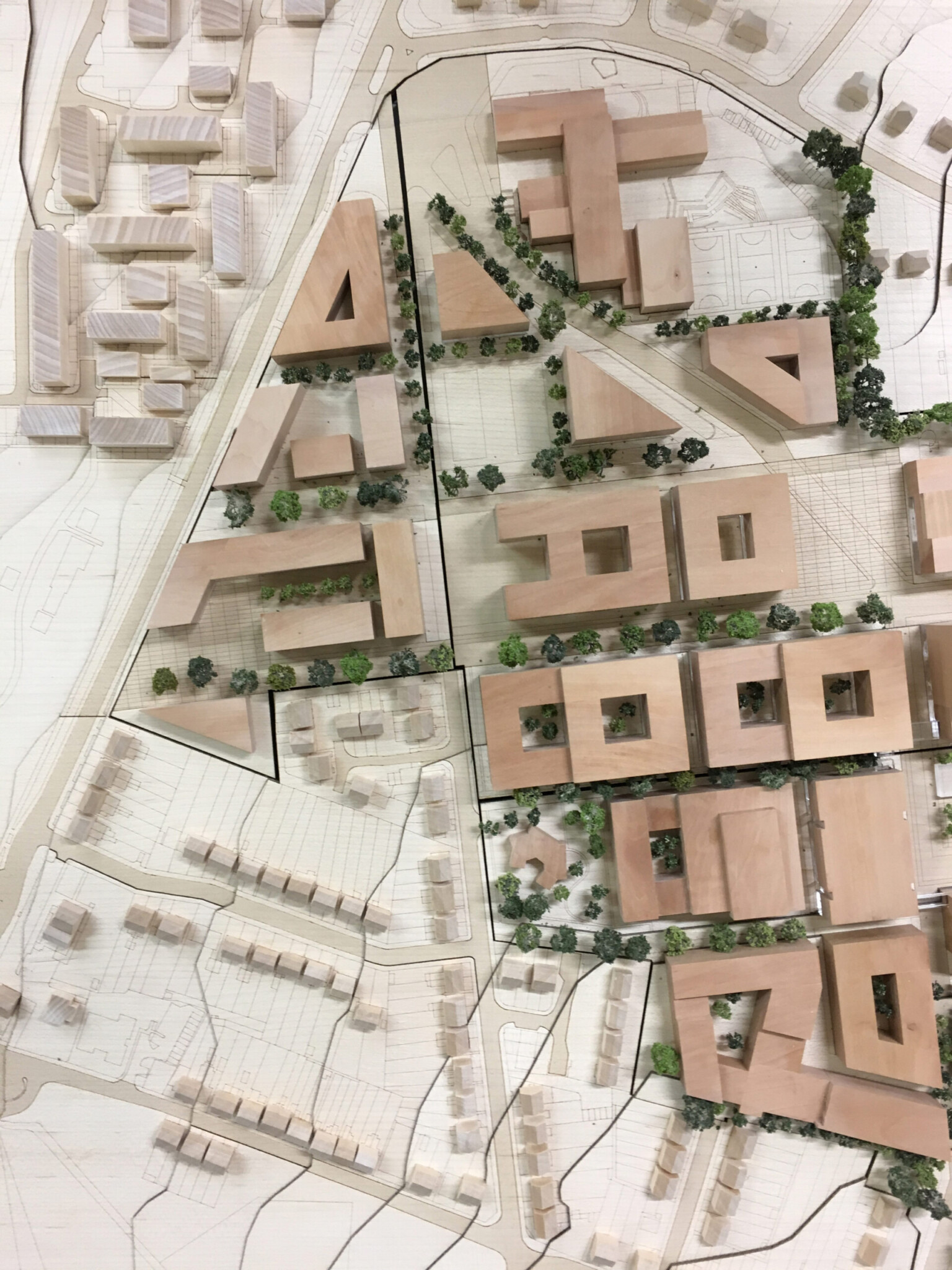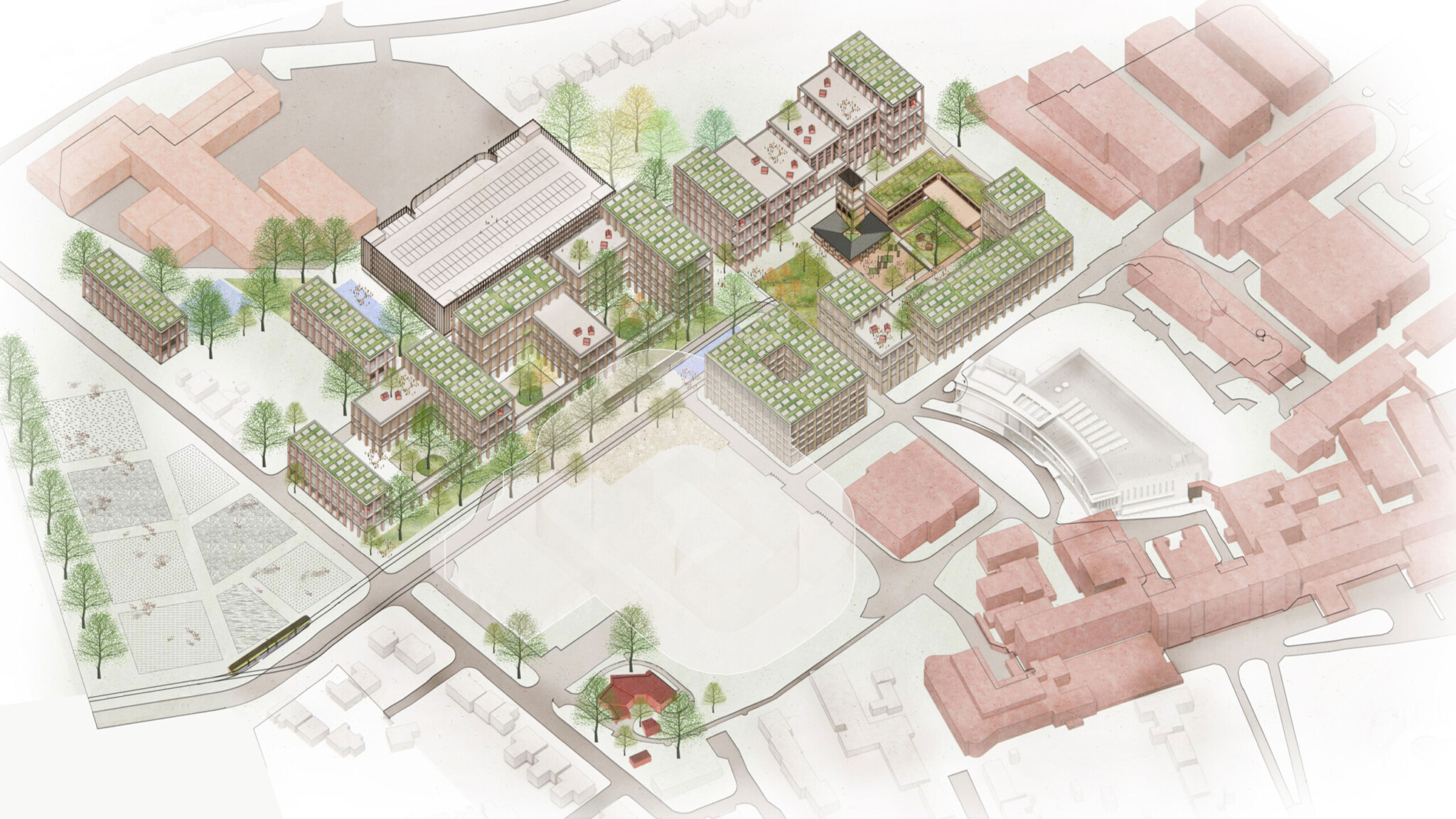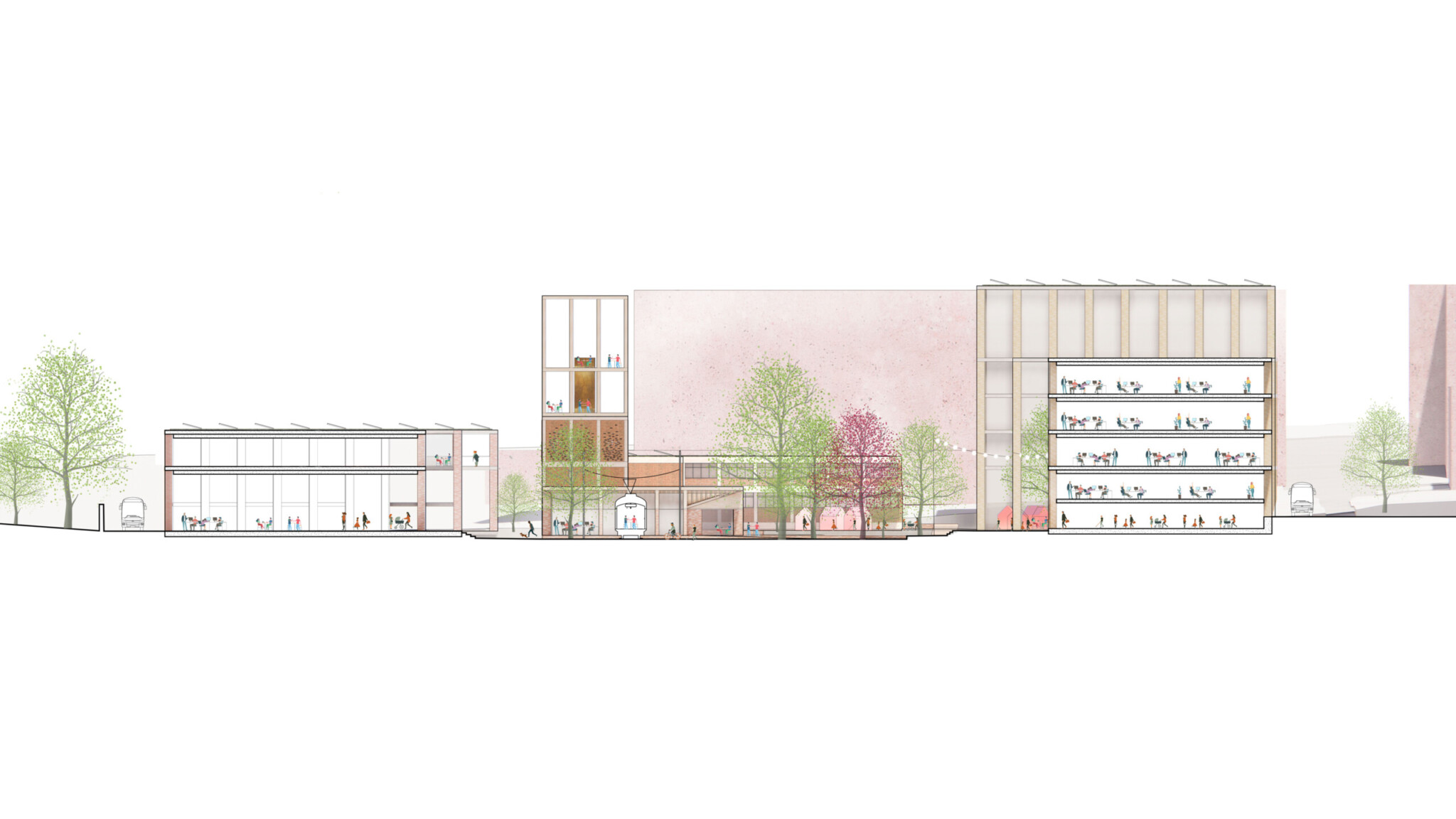Strategic masterplan for a global centre for cancer innovation in south London.CareExtra-LargeUKUrbanWork
Qualify
Conceive
Refine
The vision behind the London Cancer Hub (LCH) is to bring together the best scientists, clinicians and innovators from across the world to collaborate in a new district of shared spaces, both inside and out.
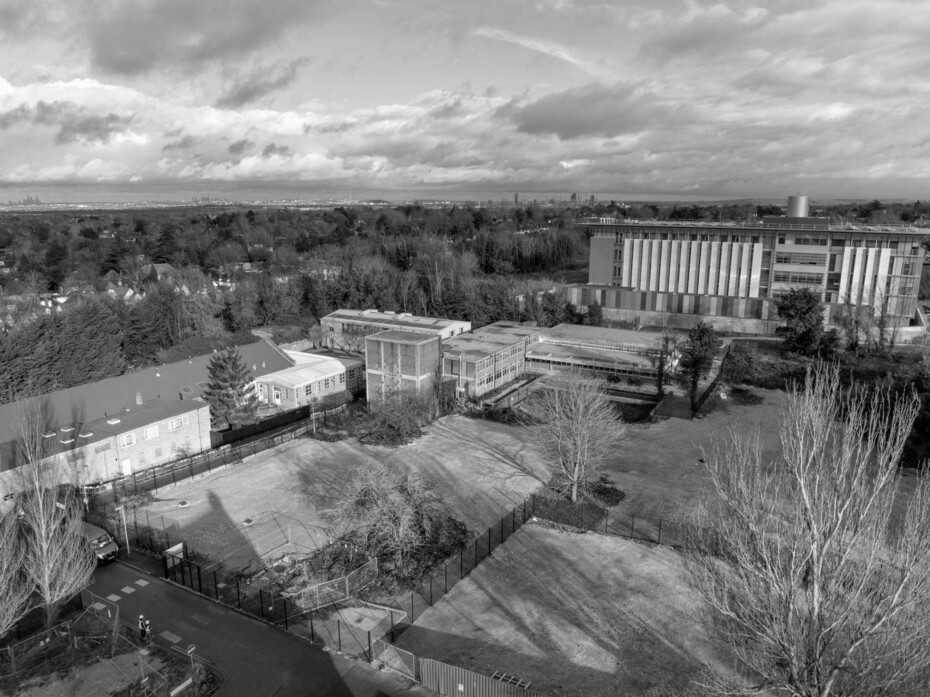
For the benefit of all those with cancer, the hub will develop world-leading programmes for research, treatment and enterprise, and offer an outstanding environment for all those who use the site – patients, staff and the wider community.
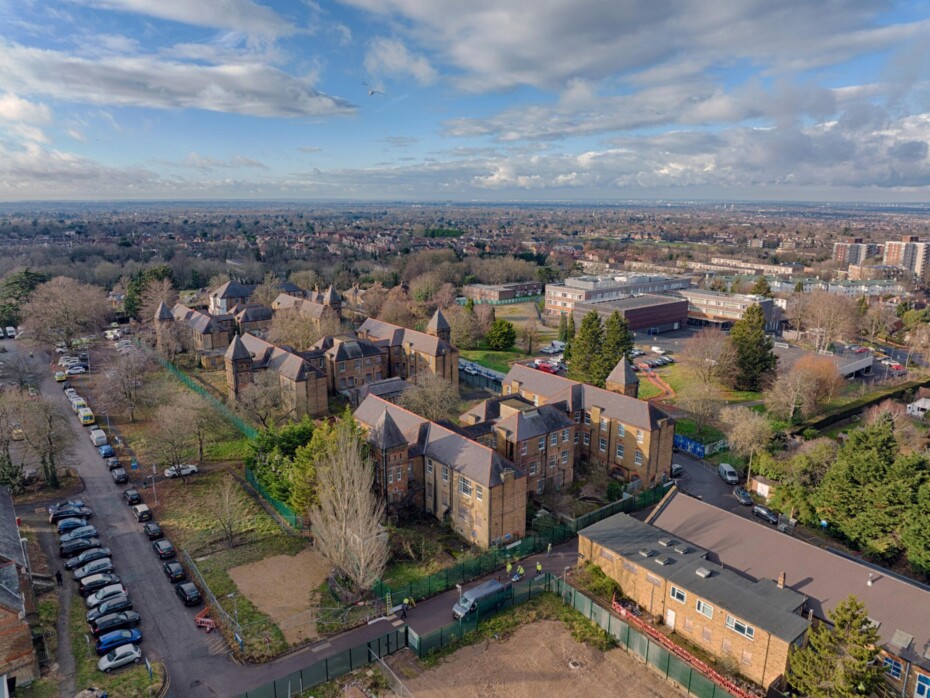
We have worked with the London Borough of Sutton and LCH partners since 2016 to devise a business case, development framework and delivery strategy for the site at the Royal Marsden Hospital in south London.
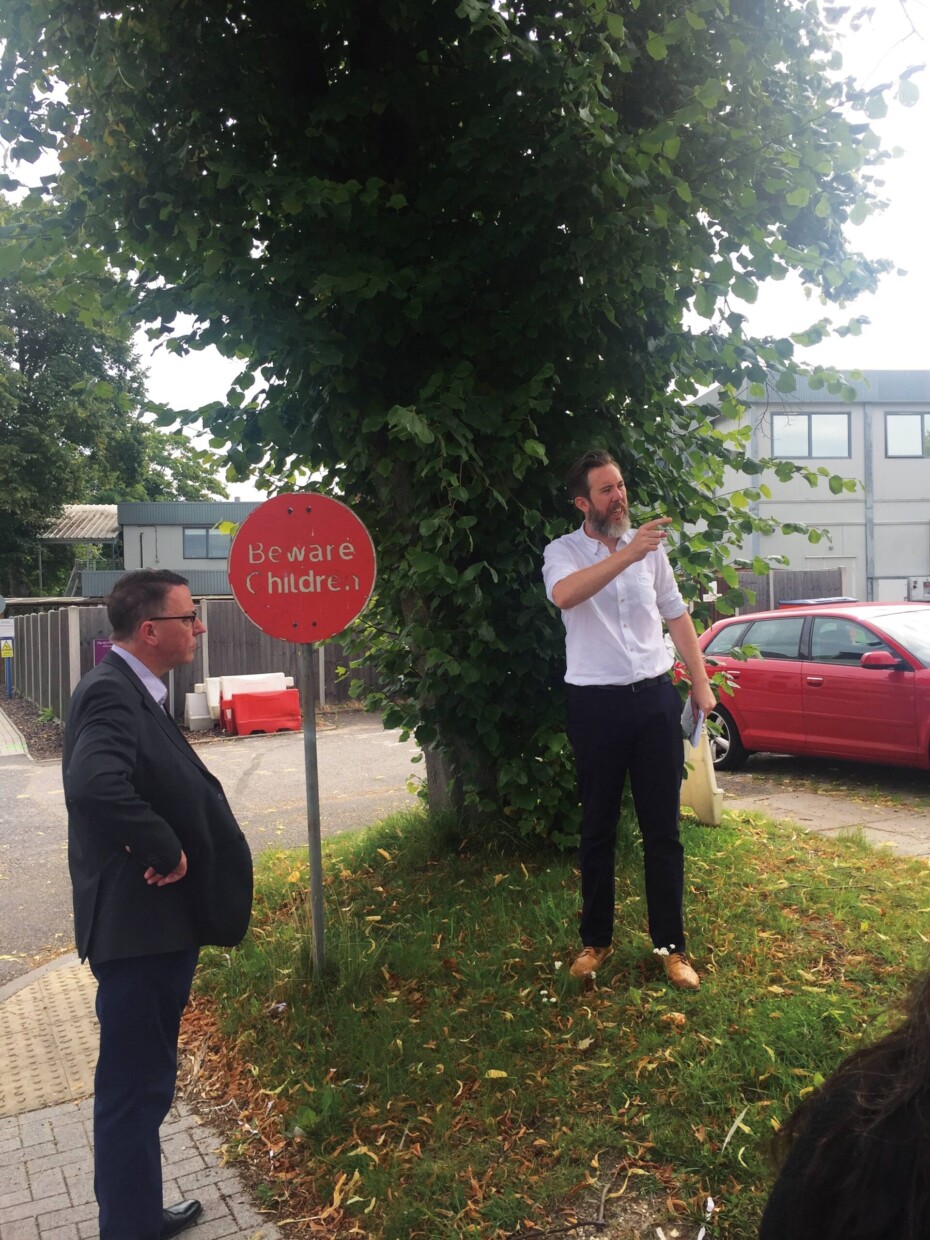
The complex site has been developed in a piecemeal fashion and currently lacks legibility, partly due to the dominance of cars and surface parking.
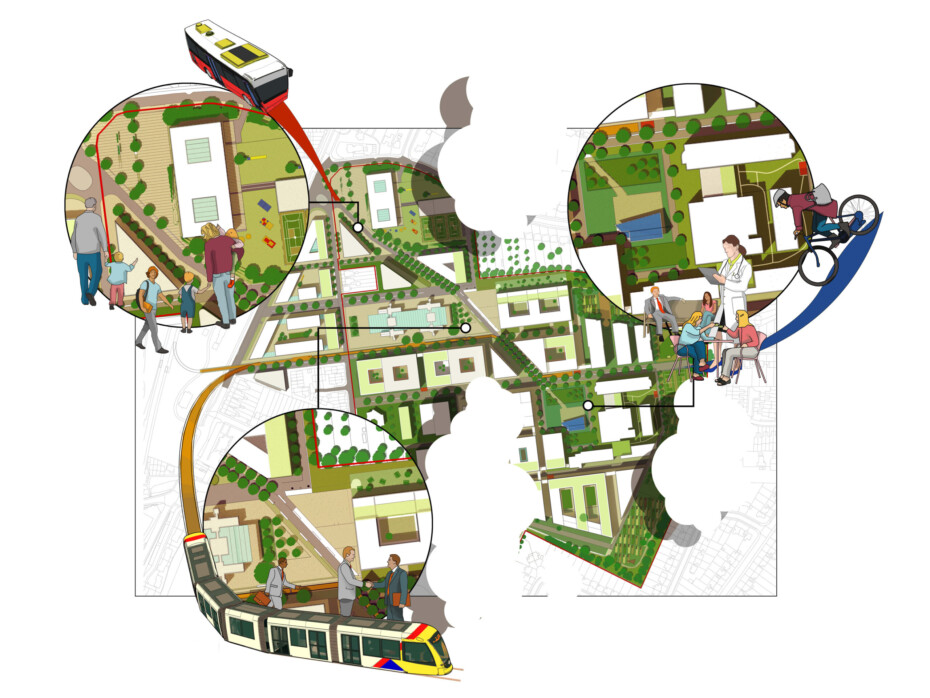
Working in partnership with Nordic, we drew from our experience of designing healthcare and life-sciences in Scandinavia, developing a vision for an open, green and equitable campus.
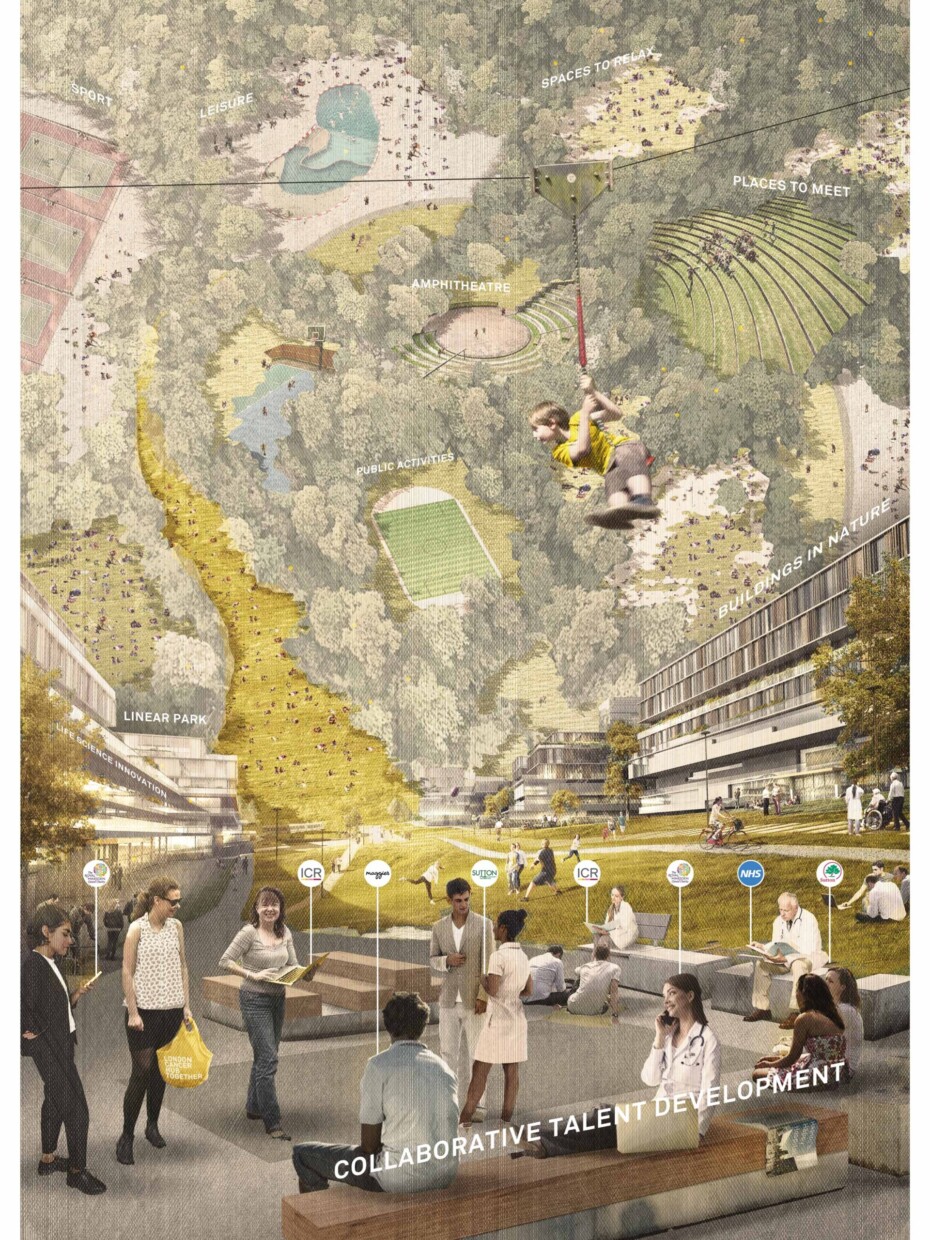
Alongside an outstanding healing environment for patients, the campus also offers attractive work and leisure space for researchers, clinicians and the community.

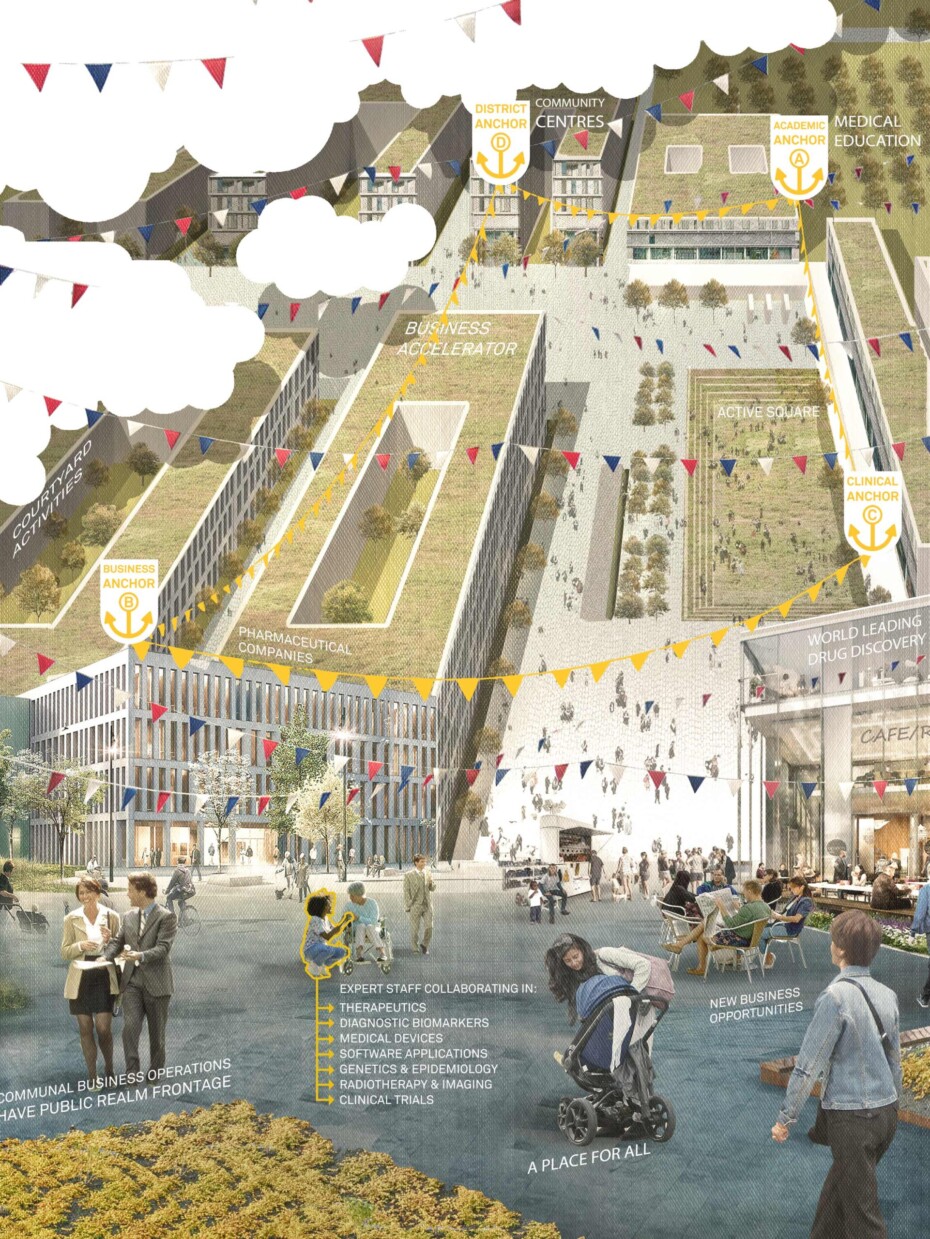
Our guiding principles were to create a flexible urban structure with a clear hierarchy of routes and public space. Permeability into and across the site is improved with a central green spine and well-marked entrance.

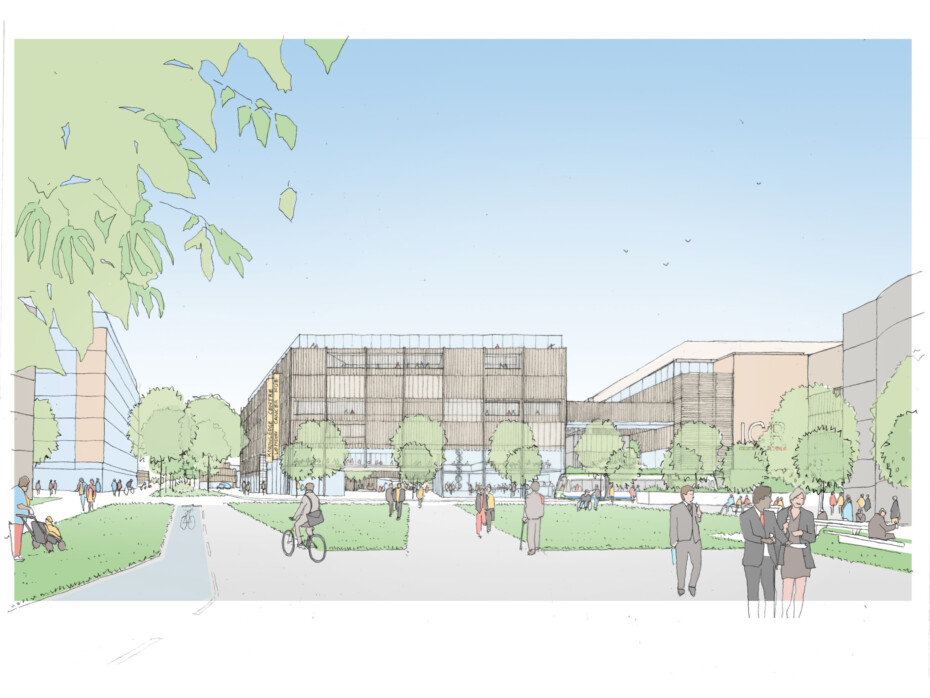

“The generous green spine sets the tone for The London Cancer Hub: it’s a place where walking and cycling is prioritised, with places to relax or play sport.”
Scott Grady, Haptic
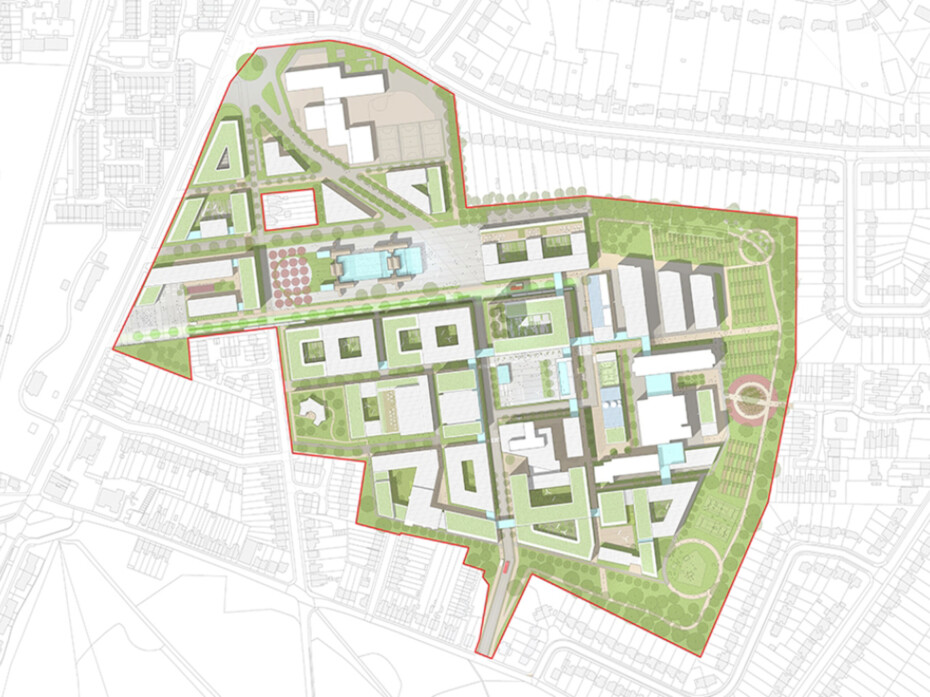
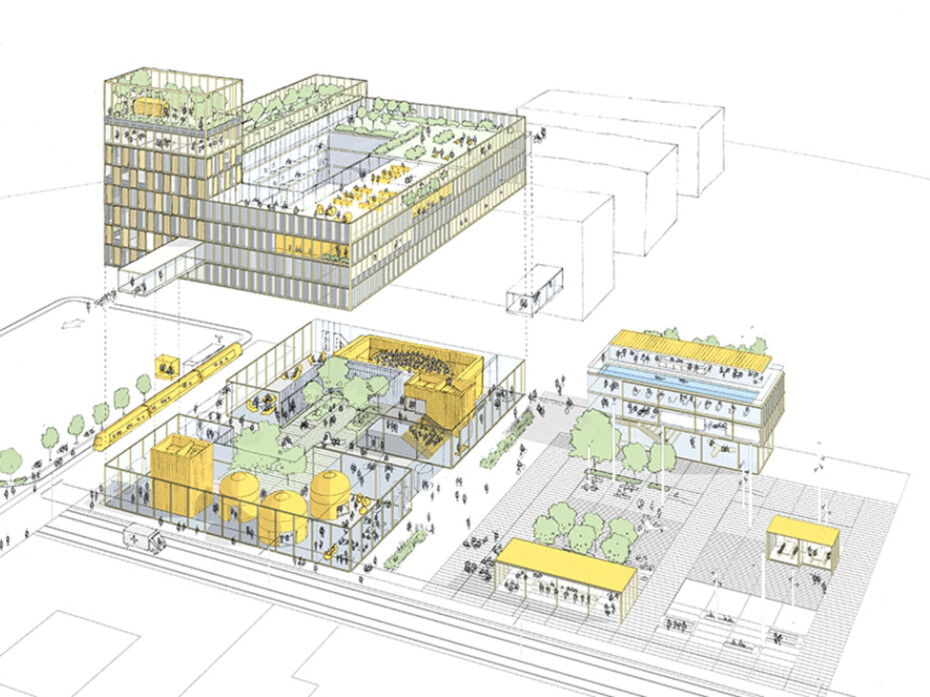
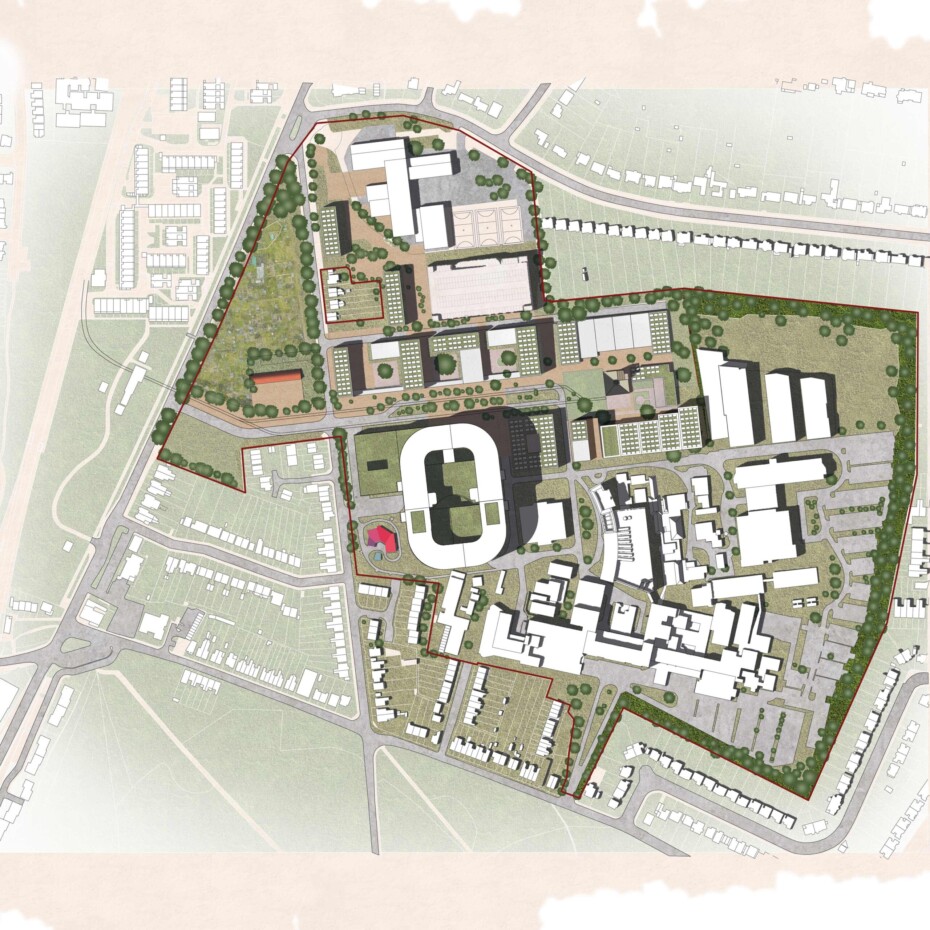
The site is under multiple ownerships, so we devised a clear pathway for development in a series of waves. This phased strategy has led to the early delivery of the Harris Academy, a specialist secondary STEM school, and a Maggies centre alongside the Centre of Cancer Drug Discovery. A £500-million acute care hospital and cancer centre is also under way.
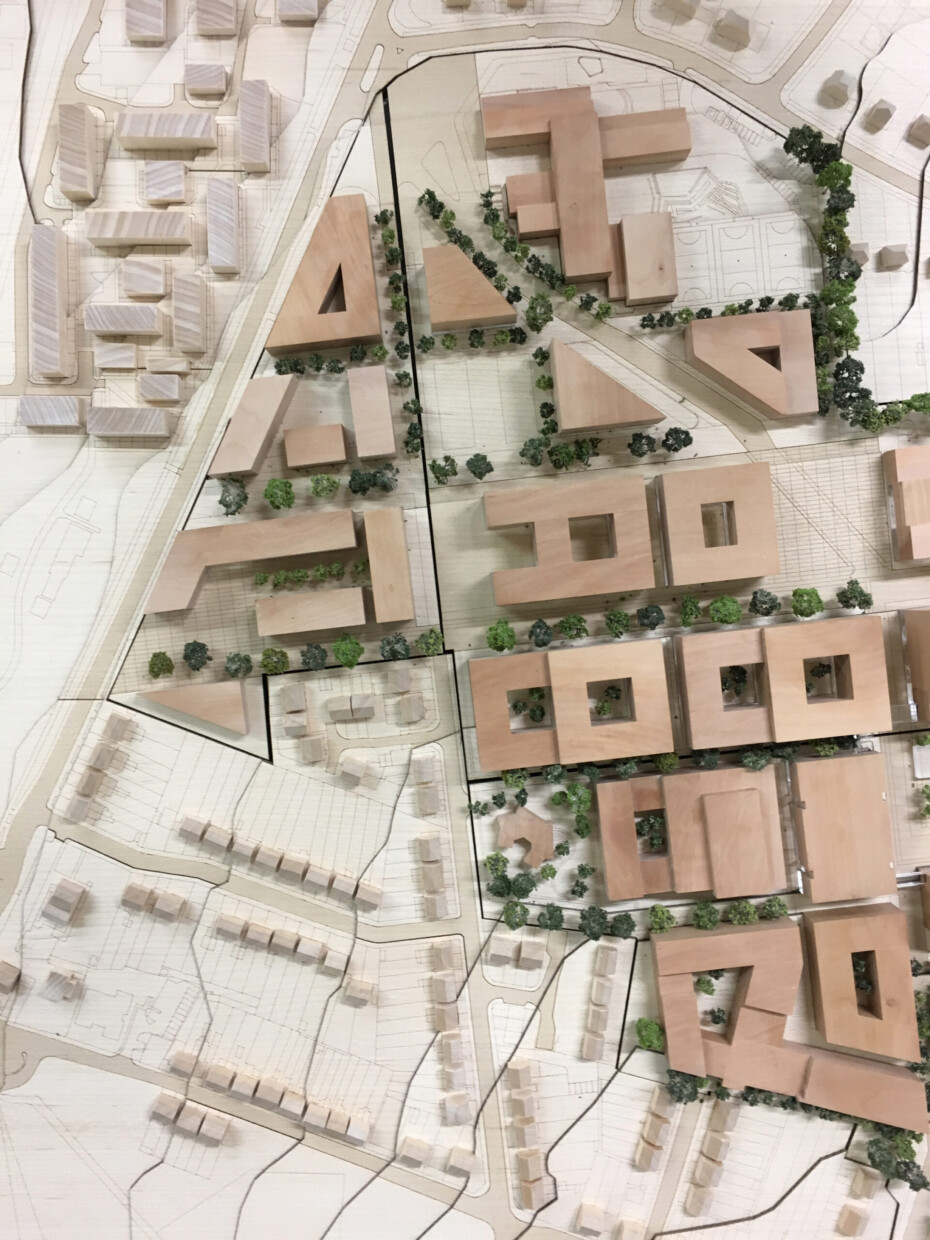

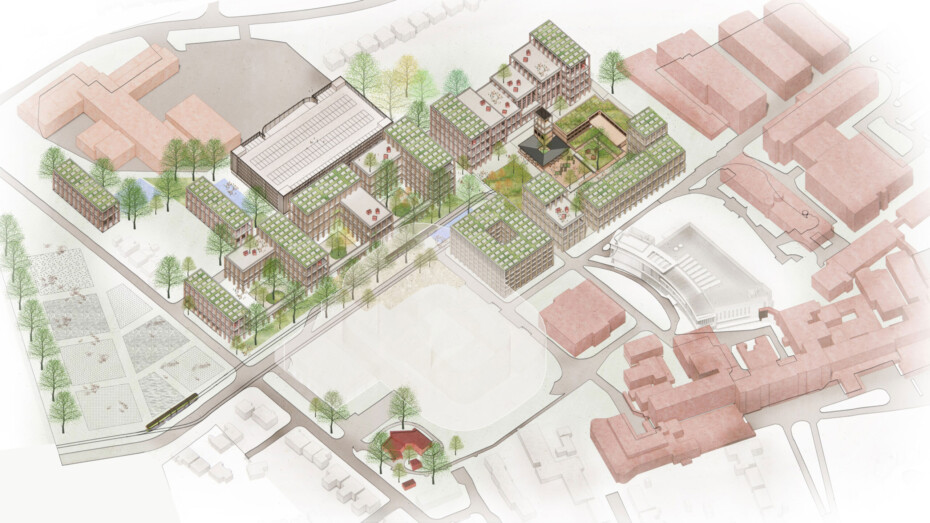
We are currently working with the local borough to identify a development partner for a pioneering Knowledge Centre, a concept brought forward by the team and supported by the Institute for Cancer Research as part of their future expansion.
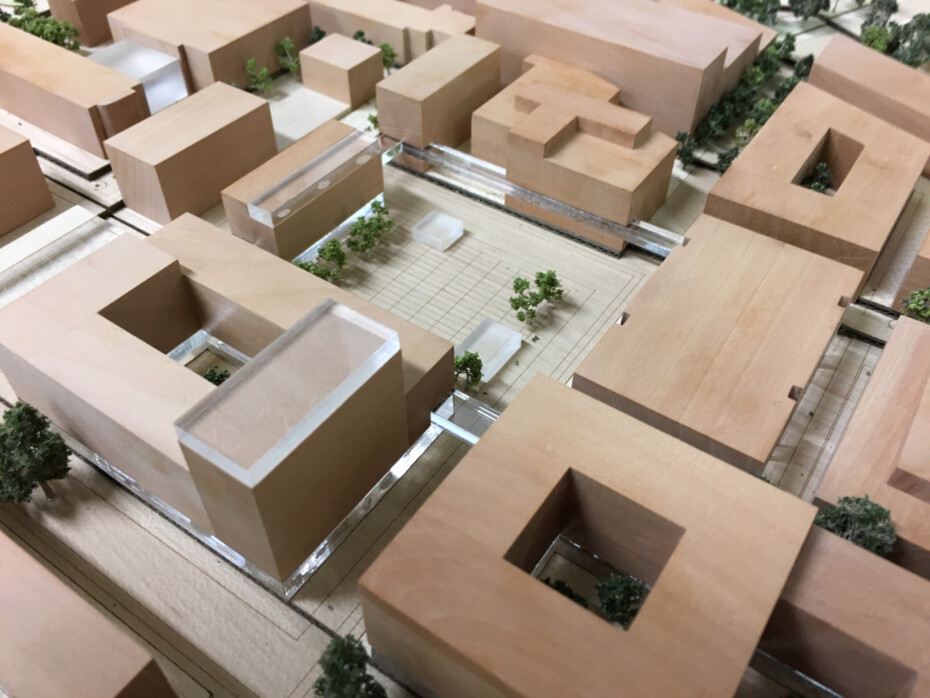

”Haptic drove an innovative approach to the site using international best practice in urban design and healthcare, predicated upon the Nordic model. Haptic’s friendly approach and flexible design strategy became essential in enabling us to achieve consensus amongst a wide range of priorities.”
Amanda Cherrington, Head of Economic Renewal & Regeneration

